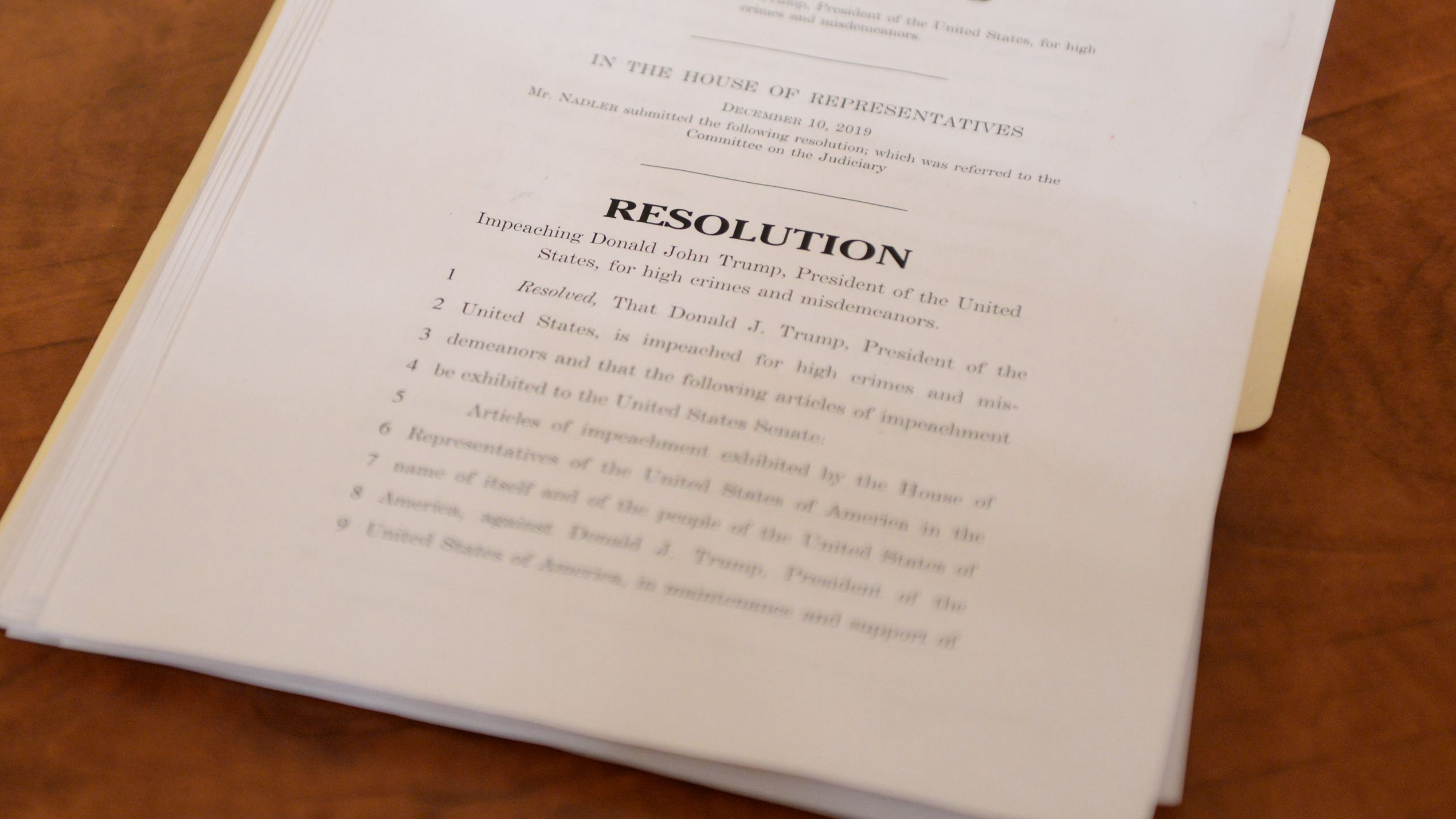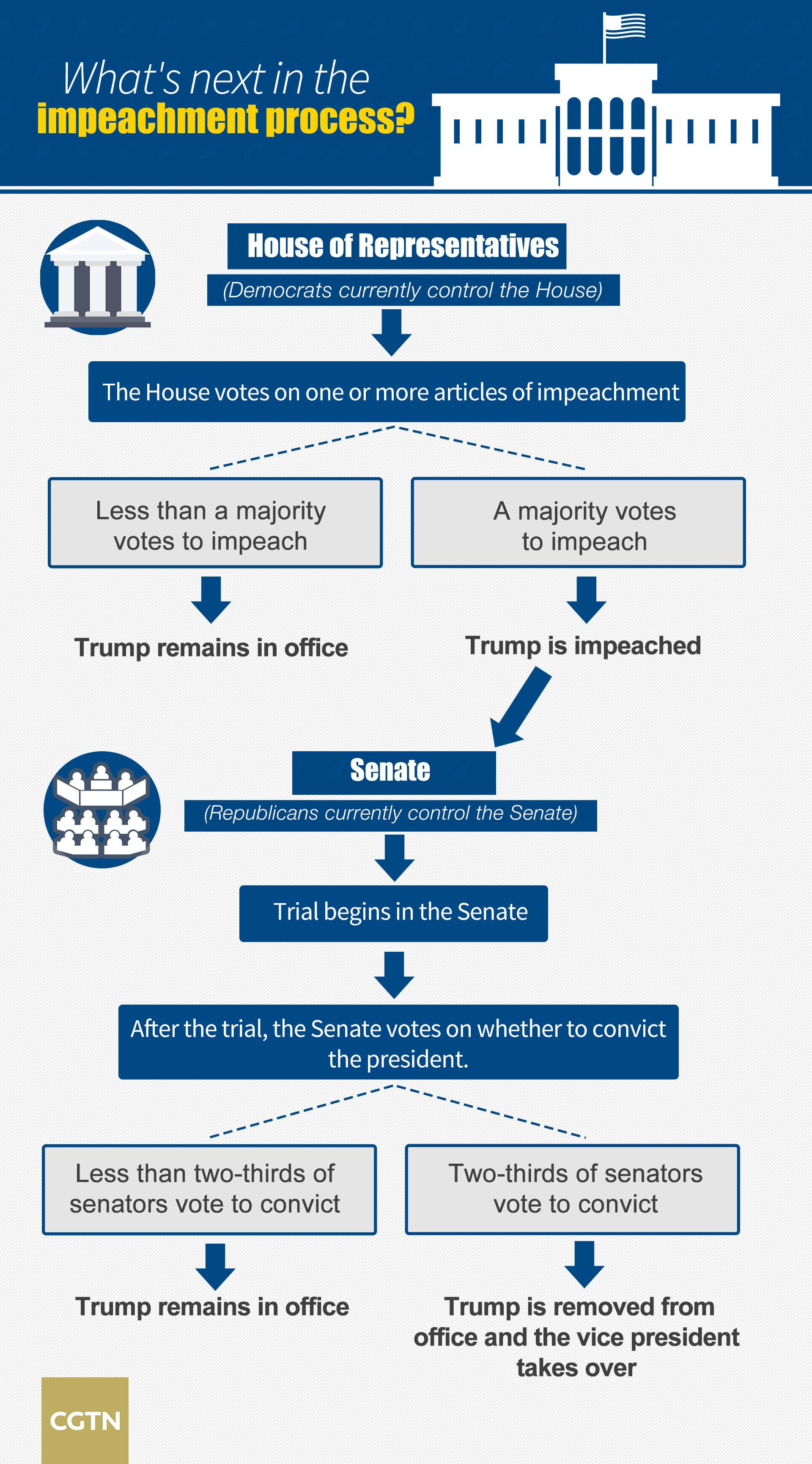Democrats in the U.S. House of Representatives on Friday took Republican President Donald Trump to the brink of impeachment by approving two charges against him over his efforts to pressure Ukraine to investigate Democratic political rival Joe Biden.
A divided House Judiciary Committee voted 23-17 along party lines to approve articles of impeachment charging Trump with abusing the power of his office over the Ukraine scandal and obstructing House Democrats' attempts to investigate him for it.

The articles of impeachment against U.S. President Donald Trump lie on the clerk's desk after the House Judiciary Committee voted on Capitol Hill in Washington, U.S., December 13, 2019. /Reuters Photo
The articles of impeachment against U.S. President Donald Trump lie on the clerk's desk after the House Judiciary Committee voted on Capitol Hill in Washington, U.S., December 13, 2019. /Reuters Photo
Trump is expected to become the third U.S. president to be impeached when the full Democratic-led House votes on the charges, likely next week, setting up a trial in the Republican-controlled Senate. Trump's fellow Republicans have shown no signs of wanting to remove Trump from office.
In congressional hearings that have gripped Washington, Democrats accused the president of endangering the U.S. Constitution, jeopardizing national security and undermining the integrity of the 2020 election by asking Ukrainian President Volodymyr Zelenskiy in a July phone call to investigate Biden.
Read more:
Trump responds to impeachment vote
How impeachment could boost Trump's re-election
Graphics: Can Trump's 'red wall' be shattered?
Republicans have defended Trump and accused Democrats of a politically motivated farce aimed at overturning his surprise 2016 presidential election victory.
"Impeachment is a hoax. It's a sham," Trump told reporters at the White House after the committee's vote. "There was nothing done wrong. To use the power of impeachment for this nonsense is an embarrassment to this country."
If impeached, Trump is due to go on trial in the Senate in January just as the 2020 presidential campaign, in which he is seeking re-election, picks up speed.
What happens next?
Tentative plans are in place for a debate in the full House of Representatives as soon as Wednesday followed by a vote that same day or Thursday on whether to approve the articles of impeachment and send Trump for trial.
There must be 216 votes in favor for impeachment to go ahead. Democrats hold 233 seats, compared with 197 Republicans and one independent.

Twenty Republican senators would have to join all 45 Democrats and two independents who caucus with the Democrats to vote to remove Trump from office.
The trial would be presided over by U.S. Chief Justice John Roberts. The length of the proceedings would depend on whether witnesses were called, a decision that is up to a majority vote in the chamber.
Trump has signaled an interest in calling many witnesses, including Biden and Democratic House Speaker Nancy Pelosi, believing a big trial would be good for Republicans.
A lengthy trial would eat up weeks of time ahead of the first Democratic presidential nominating contests in Iowa and New Hampshire in early February.
Influential Republican senators have said they want to keep any trial as short as possible.
(With input from Reuters)